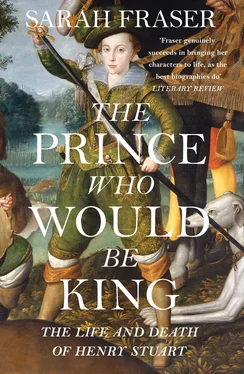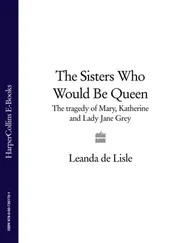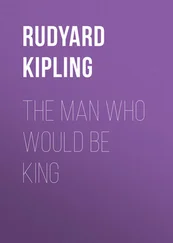Sarah Fraser - The Prince Who Would Be King - The Life and Death of Henry Stuart
Здесь есть возможность читать онлайн «Sarah Fraser - The Prince Who Would Be King - The Life and Death of Henry Stuart» — ознакомительный отрывок электронной книги совершенно бесплатно, а после прочтения отрывка купить полную версию. В некоторых случаях можно слушать аудио, скачать через торрент в формате fb2 и присутствует краткое содержание. Жанр: unrecognised, на английском языке. Описание произведения, (предисловие) а так же отзывы посетителей доступны на портале библиотеки ЛибКат.
- Название:The Prince Who Would Be King: The Life and Death of Henry Stuart
- Автор:
- Жанр:
- Год:неизвестен
- ISBN:нет данных
- Рейтинг книги:3 / 5. Голосов: 1
-
Избранное:Добавить в избранное
- Отзывы:
-
Ваша оценка:
- 60
- 1
- 2
- 3
- 4
- 5
The Prince Who Would Be King: The Life and Death of Henry Stuart: краткое содержание, описание и аннотация
Предлагаем к чтению аннотацию, описание, краткое содержание или предисловие (зависит от того, что написал сам автор книги «The Prince Who Would Be King: The Life and Death of Henry Stuart»). Если вы не нашли необходимую информацию о книге — напишите в комментариях, мы постараемся отыскать её.
NOW THE SUBJECT OF BBC2 DOCUMENTARY The Best King We Never Had
The Prince Who Would Be King: The Life and Death of Henry Stuart — читать онлайн ознакомительный отрывок
Ниже представлен текст книги, разбитый по страницам. Система сохранения места последней прочитанной страницы, позволяет с удобством читать онлайн бесплатно книгу «The Prince Who Would Be King: The Life and Death of Henry Stuart», без необходимости каждый раз заново искать на чём Вы остановились. Поставьте закладку, и сможете в любой момент перейти на страницу, на которой закончили чтение.
Интервал:
Закладка:
Although Basilikon Doron was a practical manual on kingcraft, James touched on the theory of monarchy, as expanded upon in his recent long essay: The True Lawe of Free Monarchies . The king nuanced the Calvinist theory of predestination when he told Henry there was nothing you could do to earn the right to rule; God’s will destined Henry to be king. Kings preceded the creation of all councils, including parliaments and church. Thus, on every count the king’s power was pre-eminent.
This was the voice of a personal and absolute monarch speaking: one in whom supreme power rested, without any necessity to work through parliaments or councils. King Henry IX will be a type of ‘little god’, said James, adapting Psalm 82:6: ‘I have said, ye are gods’, there to exercise imperial power. Nonetheless he must earn his subjects’ respect – as ‘the highest bench is the sliddriest to sit upon’.
Lofty and earthy, this was a classic Jamesian image of kingship, congruent with his True Lawe of Free Monarchies (subtitled The reciprock and mutuall dutie betwixt a free King, and his natural Subiectes ), in which James made an apology for the theory of the divine right of kings and absolutism, the monarch’s ‘imperium’. Since they were quasi-divine beings, said James, kings could not be punished by subjects if they were weak or wicked.
In the last resort, a monarch was ‘free’ to do as he liked. Only God could tip monarchs off the ‘sliddriest’ bench into the abyss if they failed to rule well. A king’s duty was more onus than honour. His first duty was to be a good ruler. If Henry kept that in mind, he would avoid the loathing of God and men.
FIVE
Tutors and Mentors
‘STUDY TO RULE’
To shape this ‘little god’, James and Mar appointed the humanist scholar Adam Newton, an Edinburgh baker’s son, as principal tutor. Newton had been the only commoner to receive Basilikon Doron in 1599. Henry now sat in the schoolroom in the Prince’s Tower at Stirling, where his father and Mar had sat twenty-five years before, when they had been nurtured by a luminary of the Calvinist renaissance, the aged, godly and abusive George Buchanan. Buchanan might well have thrashed James senseless for proposing the unassailability of absolute monarchy.
Buchanan’s own political writings legitimised not merely resistance, but prescribed overthrow, even tyrannicide, for ungodly monarchs. Extreme Calvinism and the idea of a contractual, not absolute, monarchy often went hand in hand. James thought Buchanan was a ‘vain Puritan’, violently overstepping his calling, and he had feared him. The beatings the boy-king suffered were on occasions frenzied. Once James left the schoolroom and took control of government, he banished Buchanan and burned his books.
As well as tutoring the king, Buchanan had mentored the godly Melville, author of Prince Henry’s baptism poem. Henry’s newly appointed tutor, Adam Newton, had in turn been mentored by Melville. Newton was as demanding as the king’s tutors had been, but kind. Henry’s servants remembered that ‘next his parents, he was always most loving to his schoolmaster … notwithstanding that … Newton did always prefer his own duty and his Highness well-doing before the pleasing of his fancies’.
After receiving his degree, Newton had travelled to France to hear Huguenot philosophers debate the politics of rightful resistance to a king. The philosophy of contractual monarchy argued that a monarch must rule by the consent of the people, for the benefit of the whole commonwealth. If not, he should be resisted, perhaps removed. In exchange for good governance, the people submitted to his rule, and gave their loyalty, even to death. Honouring this implicit ‘contract’ sanctioned the ruler’s supreme power over their subjects and safeguarded their liberties. Newton went to teach this political vision at the prestigious St Maixent college in Poitou, north of La Rochelle. He believed in monarchy as a system of rule, but in a contractual not imperial version. Yet he served a king whose theories on the nature of monarchy allowed no resistance to the will of the ‘little god’ monarch, no matter how bad he was.
Henry’s guardian, the Earl of Mar, appeared to embrace some of Buchanan and Newton’s political vision. In one council meeting, Mar censured fellow nobles for saying they would ‘leave all to the King’s pleasure’. ‘It was not well that they should not freely give their advice as Councillors,’ said Mar, ‘which the King well allowed of.’ Although James VI welcomed advice and debate, he never felt bound by any of it. The godly Mar envisaged king and well-born advisers ruling together in council, through the legislature, for the good of the realm as a whole. It was hard to imagine Newton or Mar working to shape a future Henry IX who believed his councillors should ‘leave all to the King’s pleasure’.
From these first days in the schoolroom, Prince Henry was exposed to at least two potentially incompatible sets of ideas about who he was, what he should believe, his attitude to monarchy and how he should act.
Newton was not left alone to educate Henry. Walter Quin, an Irish poet, was sent for to assist him. Quin came with the blessing not only of King James of Scotland but also of the Earl of Essex over four hundred miles away in London. Robert Devereux, the 2nd Earl of Essex, was Elizabeth I’s principal favourite, a significant power in the country and a military commander in Ireland. In his poems praising James VI, Walter Quin urged the king to let a man of great Renaissance virtue guide him onto the English throne. He surely had Essex in mind.
Essex meanwhile courted James and tried to persuade Elizabeth of the need to settle the succession in favour of the Scottish king and his progeny. However, Elizabeth would not listen to his counsel, to the earl’s fury. Essex firmly believed strong councillors secured an absolute monarch. These councillors must criticise when they saw their sovereign acting in error, against the good of the whole commonwealth.
As well as tutors of all kinds, Henry needed body servants. Mar brought in his first cousin, David Murray of Gorthly, as First Gentleman of the Bedchamber. Murray’s high forehead and thick red hair and beard framed small bright eyes, giving him the look of an alert, friendly squirrel. A full-lipped mouth twitched upwards in a smile, all set in a long, rectangular face. A Renaissance soldier-poet, Murray was also a godly Calvinist, like most of the Mar clan. As overseer of the prince’s bodily needs, Murray slept on a truckle bed in Henry’s chamber. No man saw more of the boy.
James sent David Foulis to work with Murray and take charge of Henry’s wardrobe. Foulis had first come to James’s court as a pageboy. Later, he would be entrusted with taking the king’s communications to Elizabeth. Now, as ‘an ancient friend’ of the Essexians, he acted as go-between in the secret correspondence between James and Essex. His role allowed him easy access to intelligence on the prince and his household, which he then sold on to the English earl and his camp.
In the letters, Essex’s codename was ‘Plato’ and the king ‘Tacitus’. James might have wondered why he was Tacitus. The Roman historian was a source of great fascination for the Essexians and Henry Savile, who tutored Essex’s son, was a renowned translator of his writings. Rediscovered in the Renaissance, Tacitus’s works analysed the virtues of Rome under the Republic, where power resided in a strong council of elected individuals representing the flower of the whole community, under an elected leader. In comparison, Tacitus had reservations about the imperial era in Rome under the rule of the Caesars: absolute rule by non-elected emperors, ‘free’ to be unaccountable for their actions, if they wanted. Referring to James VI as ‘Tacitus’ suggested the Essex group dreamt that Stuart rule would inaugurate a Tacitus-influenced English political system: strong council with virtuous rule, and the security of a hereditary monarchy.
Читать дальшеИнтервал:
Закладка:
Похожие книги на «The Prince Who Would Be King: The Life and Death of Henry Stuart»
Представляем Вашему вниманию похожие книги на «The Prince Who Would Be King: The Life and Death of Henry Stuart» списком для выбора. Мы отобрали схожую по названию и смыслу литературу в надежде предоставить читателям больше вариантов отыскать новые, интересные, ещё непрочитанные произведения.
Обсуждение, отзывы о книге «The Prince Who Would Be King: The Life and Death of Henry Stuart» и просто собственные мнения читателей. Оставьте ваши комментарии, напишите, что Вы думаете о произведении, его смысле или главных героях. Укажите что конкретно понравилось, а что нет, и почему Вы так считаете.












